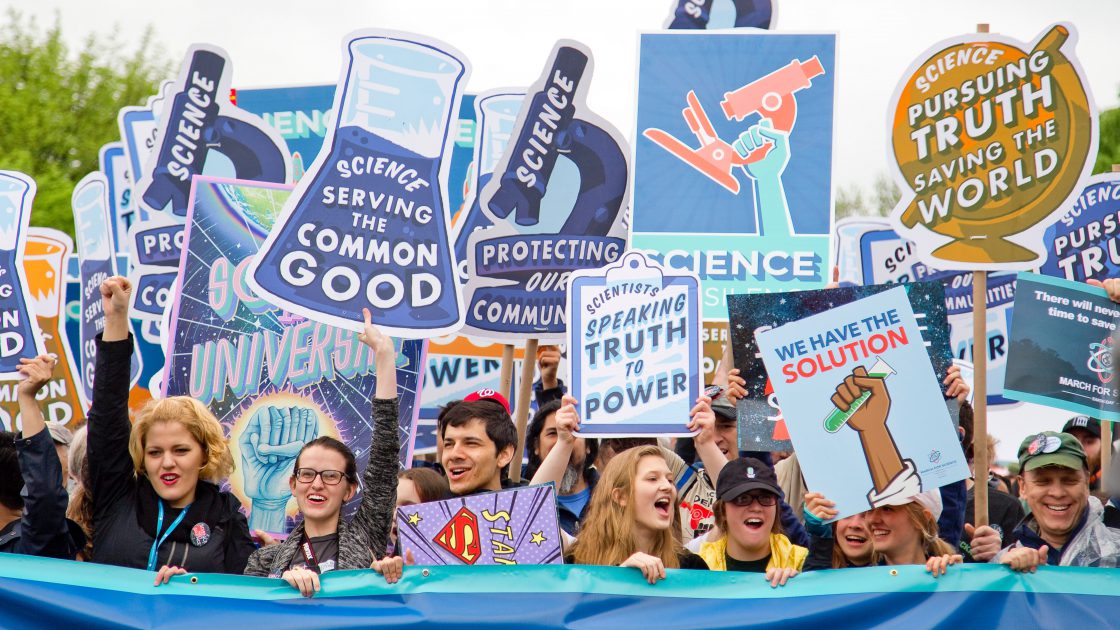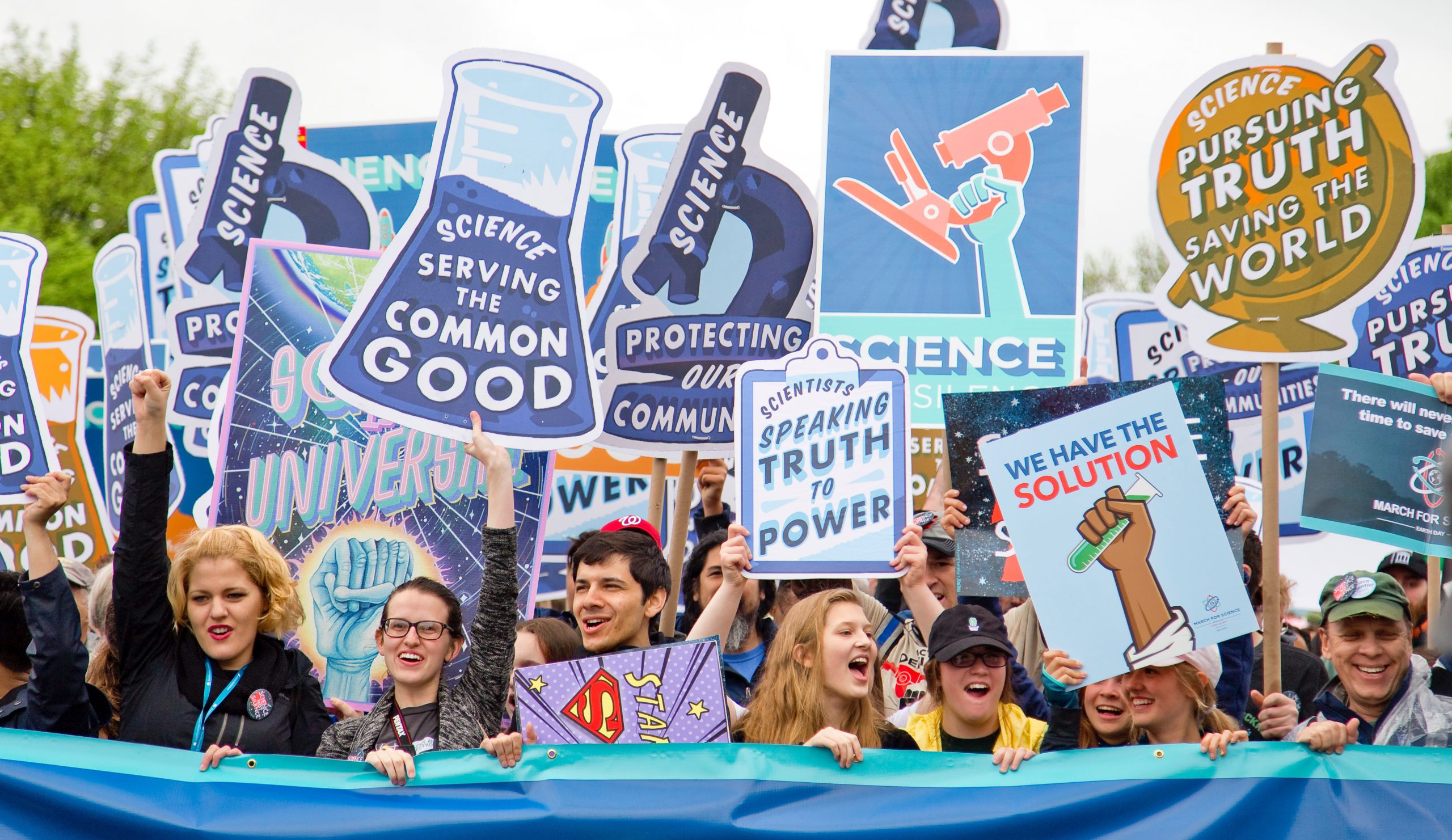
Marching for Science? Know Your Rights.

Many scientists in the United States have been moved to action as a result of the current political climate. If you’re one of them and you’re planning to join the March for Science on April 14 — or participate in other activism — it’s crucial that you know your rights.
Although the chances of running into trouble when you stand up for science are small, political activism as a scientist can be slippery. At the Climate Science Legal Defense Fund, we’ve assisted well-meaning researchers who inadvertently put themselves at risk and encountered problems when they forayed into activism.
To help you safely organize and speak out, together with the American Civil Liberties Union (ACLU), we created a free guide, “Know Your Rights: Science Activism and Protests.” It outlines concrete things you can do to protect yourself, what to do if you feel your rights have been violated, and where to find additional resources on advocacy and activism.
So, direct from our guide, here are a few key things you should do when planning to take to the streets.
First and foremost: Separate your work and activism.
- Always maintain separate personal and professional email accounts, and use the personal account for your activism activities. This will protect against your personal emails being made public pursuant to open records laws.
- Don’t organize or discuss activism at work; these activities should always be done outside of your workplace and work hours.
- Don’t use work or government-funded supplies for your activism activities. Always use your personal computer, printer, etc.
- When demonstrating, don’t wear work paraphernalia, such as a hat with your university logo or a work-issued lab coat.
- Don’t provide your work affiliation when publicizing your involvement in advocacy. If you must do so for identification purposes, always clarify that you are not speaking on behalf of your institution.
Know how to demonstrate.
- Peaceful and non-obstructive demonstration is constitutionally protected even without a permit.
- Obey traffic signals and keep space open for non-demonstration pedestrian traffic. Do not maliciously obstruct or detain passersby.
- Use cardboard tubes for posters; don’t use sticks, which may be considered weapons.
- If you are organizing a protest or demonstration, get a permit to notify police about your activities and reserve your location. Rules and procedures vary; review your city’s official website.
These are just the basics. For more detailed information and tips, read our complete guide to science activism and protests — and please share it with your marching colleagues.
The information contained in the guide concerns U.S. laws only and does not constitute specific legal advice. If you have questions regarding a particular circumstance, please call your lawyer or seek free advice from a Climate Science Legal Defense Fund attorney by emailing lawyer@csldf.org.
We’d like to thank the ACLU for helping us create this guide and for allowing us to adopt parts of their publications.